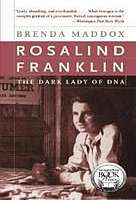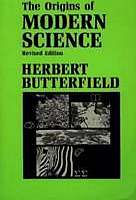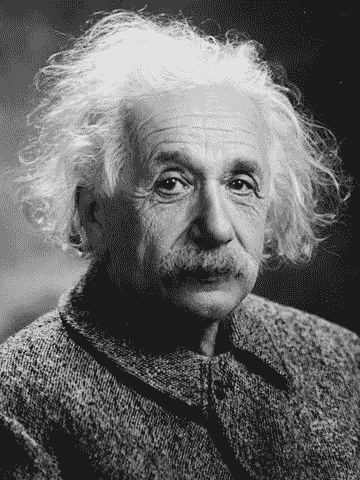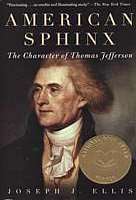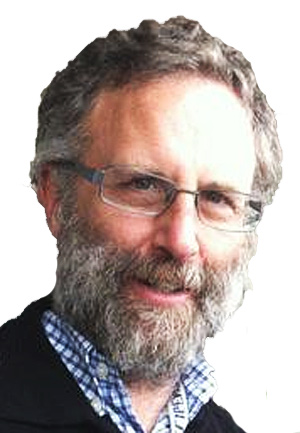 Popular
Popular
The Dark Lady of DNA
Rosalind Franklin made critical contributions to the discovery of DNA's structure, yet was not awarded the Nobel. Why not? Rank villainy? Maddox's masterful recounting lays out the complex tale.
Evolutionary zinger: Bats, moths and mites
When Fred Rickson taught his section of General Biology at Oregon State, I made sure to attend all of his lectures, as he opened them with his evolutionary zingers, hoping that his students would would be enticed to be more prompt than usual. My favorite was his zinger about the three-way symbiotic relationship between a bat, a moth, and a mite.Did Vermeer do it with mirrors?
 In his book Secret Knowledge: Rediscovering the Lost Techniques of the Old Masters, painter David Hockney has suggested that Vermeer and other hyper-realistic painters like Caravaggio used optical projection techniques to assist in the production of their startlingly real paintings. This has been met with a good deal of skepticism in the art world, in particular because the means and tools for the technique are not forthcoming.
In his book Secret Knowledge: Rediscovering the Lost Techniques of the Old Masters, painter David Hockney has suggested that Vermeer and other hyper-realistic painters like Caravaggio used optical projection techniques to assist in the production of their startlingly real paintings. This has been met with a good deal of skepticism in the art world, in particular because the means and tools for the technique are not forthcoming. The Origins of Modern Science
Herbert Butterfield, in his book The Origins of Modern Science, tells the story of the development of modern science by focusing on the ideational changes in what is now referred to as science from the late Middle Ages until the advent of the French Revolution, with primary emphasis on the development of the modern understanding of motion. This is a brilliant choice, as it was the development of a robust physical and mathematical model of motion that allowed Newton to unite terrestrial and astronomical physics into a universal set of physical laws describing mechanics.
Fuzziness is all
Alongside Newton's powerful physical model of the universe came a growing belief that the universe in principle was deterministic, that the rules by which the universe behaved could be discovered and modeled, were repeatable, and could be in principle exactly or absolutely determined. Absolute determinism came under serious question with the advent of subatomic physics at the start of the 20th century, more or less collapsing in the face of problems insoluble with the physics of Newton and Maxwell, and only explicable by using the new quantum mechanics, which posits that natural phenomena could be modeled at the highest attainable precision only by using explicitly probabilistic models, that is, by building into the models a modicum of fuzziness.Das echte Lied der Alpenkräuter
When I was growing up, my father taught us a little ditty from his Mennonite boyhood:
Dar war ein Mann in Tode Loch,Und kein er sahe Mann,Und im dem letzen Stunden,Stunden,Hat er das Alpenkreuter gefunden.It was a charming little tune. Eventually, my curiosity was aroused regarding its meaning, so ...
Zeno’s Paradox? Not so much
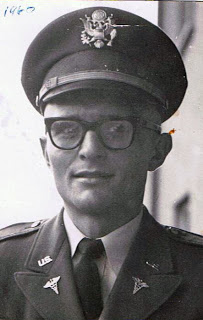
Family.
The first time I heard the tale of Zeno's paradox was in childhood, one night after dinner, with the family still around the table. My father grabbed a random section of the day's newspaper, called for a pencil, and with occasional cramped diagrams in the margins of the newspaper, intense and intent, showed us something that fascinated. Such moments with my father, which were relatively rare, I still treasure. His telling of Zeno's paradox inspired me these years later to attack the subject more vigorously.
Jefferson’s legacy
Joseph Ellis provides us with an ambitious analysis of the compartmentalized mind of Thomas Jefferson. Jefferson was extraordinarily adept at saying and writing, apparently believing, and doing things that were paradoxical and often diametrically opposed to each other. Ellis suggests that this helps to explain his enduring following by just about every political persuasion in the United States, and even abroad: Anyone can find in Jefferson something that supports one's ideology, especially if they studiously ignore, in perfect Jeffersonian fashion, the things Jefferson said or did that would negate their ideology.
You can’t go home again . . . to Husterhöh Kaserne
Thomas Wolfe's famous suggestion, "You can't go home again" covers a large amount of territory; your home is not the only thing to which you cannot return to with any but perfect verisimilitude. Recently I became curious about my old neighborhood in Pirmasens, Germany, where I was stationed as a soldier in the U.S. Army during the mid-70's. Through the magic of Google Earth and the Internet, I explored the place I once lived, now thirty five years hence.Philosophy and wine, or modern critical theory for the (inebriated) million
In which, my brother Craig provides me with an introduction to deconstruction, by way of formalism, structuralism, and semiotics, while sharing several bottles of good wine. Derrida never made more sense.


 Star glows in the void, pin point in the firmament: quintessential!
Star glows in the void, pin point in the firmament: quintessential! READING
READING ARCHIVES
ARCHIVES CATEGORIES
CATEGORIES QUOTES
QUOTES